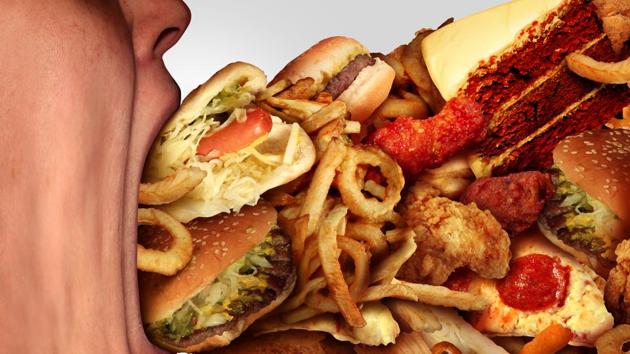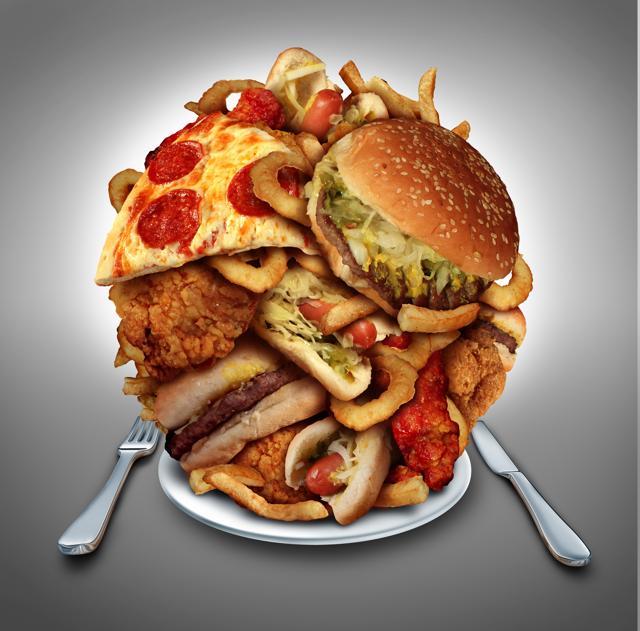Eating for fame: How safe is competitive gluttony?
A DU student recently ruptured his stomach lining after eating a large number of chilli burgers at an eating contest organised by a west Delhi eatery. Experts say that competitive eating is a dangerous trend and it must be discouraged.
A West Delhi restaurant recently organised a burger eating contest and announced an irresistible prize for the winner — meals on the house for an entire month for the person who would eat maximum number of burgers. DU student Garv Gupta took up the challenge and won it, but with a scary consequence. Next morning, Gupta noticed blood in his vomit and rushed to the doctor, who found out that he had ruptured the inner lining of his stomach because of gulping down too many chilli burgers.

While this seems like the first case of injury caused by competitive eating in Delhi, food contests caused two deaths in the US recently. Travis Malouff, 42, died due to asphyxia last April. He was trying to devour an oversized doughnut in 80 seconds to win a food contest at a doughnut shop called Voodoo Doughnuts in Denver, Colorado, US. Last March, Caitlin Nelson, 20, had choked and died during a fund-raising pancake-eating contest held at a university in Fairfield, Connecticut, United States.
Eating for fame is dangerous
Dr Mohsin Wali, physician to the President of India says that an untrained guest participating in a food contest is like a greenhorn speeding up his car on a racing track. “Consuming enormous amount of food in one go can cause serious injury. Apart from the amount, the speed at which the contestant eats can choke them to death. They don’t chew, they just gulp down the food. While doing this, a lot of air goes inside their stomach thorough the food pipe and badly inflates the stomach. Food is supposed to go down by gravity but when you eat forcefully and quickly, it is unnatural. There is no gastric peristalsis, the muscle contraction that disintegrates food in your stomach and sends it to various processing units in the digestive tract. Your stomach lining can end up getting ruptured.”
Also, when people take part in burger or doughnut eating contests, they eat an enormous amount of bread which swells up in the stomach and doubles in size. “It soaks up all digestive juices and leaves the stomach dry. This causes friction that can also lead to rupture. The stomach gets no time to produce digestive juices,” he explains.

Stop aping trends
Dr Saurabh Arora says such cases are a result of blindly copying trends from the Internet and television without understanding the dangers. “When an eating competition happens on TV, a lot of preparation goes into it. The participants are professionals, and even they are prone to risks. Restaurants should not involve untrained guest in such contest, especially in the absence of proper emergency care at the venue. They do such things for quick publicity,” he says.
Dr Arora says that since customers rarely file liability suits in India, as the process is slow and expensive, businesses do not consider such activities a risk. The absence of a regulatory body for food contests in India also makes it easy for organisers to disregard safety measures. “A fun event can turn into a disaster in the absence of guidelines. The risks must be spelt out clearly. Lack of expert supervision is dangerous. Also, there should be a selection criteria. Only those who qualify after heath checkups should be allowed,” says chef Manish Mehrotra.
Dr Wali advises young people not to get carried away by what they see on the television. “In the long run, these contests are not good for professional eating champions, too. So, one can imagine what harm they can do to those who are not trained. It’s like punishing your own body. It can cause irreversible damage to your body,” he says.
Encouraging obesity?
Delhi is a city that tops obesity charts. Thanks to junk food addiction, 1 in 3 kids of top private Delhi schools are obese, according to an AIIMS survey. In such a situation, how wise it is to lure young people to devour oversized burgers and hotdogs with the temptation of free meals? “It totally defies the ideas of healthy, nutritious eating and promotes junk food addiction,” says Dr Wali.
Why glorify gluttony?
We should also not overlook the ethical implications of such contests. Such an ostentatious showcase of food and its wastage is offensive when you have a large part of the population dying of hunger. “We need to rethink such contests. Our society is divided into two halves. One that needs to eat less, and one that has nothing to eat. There was a time when nawabs who lived a showy, filthy rich life ate 9 to 10 dishes in one go. They would purposely vomit food so that they could try more dishes. We must assess what is the message we are sending to young people,” says Dr Wali.
The perils of competitive eating
Contestants face the risk of dying due to asphyxiation, choking and pulmonary aspiration.
Competitive eating can also cause serious injury due to a ruptured stomach lining. In the long run, it can lead to ulcers, obesity, hypertension, diabetes, stress and a number of other health complications.
Contestants fast for very long hours, and then suddenly stuff their stomach with a crazy amount of food, which is dangerous. Hurriedly consuming massive calories puts extreme metabolic stress on the pancreas, liver, kidney and heart, leading to serious complications.
A badly inflated stomach can also lead to gastroparesis, a digestive disorder that hinders gastric peristalsis, the natural movement of the muscles in your stomach. In some cases, it can result in chronic nausea, vomiting, bloating, indigestion, heartburn and abdominal pain, making it difficult to have meals normally, unless partial gastrectomy (surgery to fix the damage done to the stomach by removing a part) is done.
Catch your daily dose of Fashion, Taylor Swift, Health, Festivals, Travel, Relationship, Recipe and all the other Latest Lifestyle News on Hindustan Times Website and APPs.
Catch your daily dose of Fashion, Taylor Swift, Health, Festivals, Travel, Relationship, Recipe and all the other Latest Lifestyle News on Hindustan Times Website and APPs.





